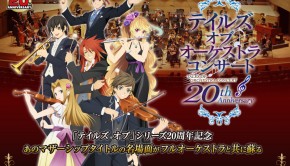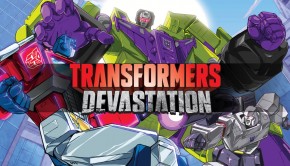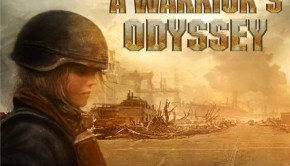Penka Kouneva Interview: Breaking into Hollywood
Penka Kouneva is an upcoming film, television, and games composer born in Bulgaria. During her ten years in Hollywood, she has orchestrated blockbusters such as Pirates of the Caribbean and composed hybridised scores for various horror titles, including Midnight Movie. She has also engaged in a long-standing collaboration with Steve Jablonsky on titles including the Transformers films and games, and, most recently, Prince of Persia: The Forgotten Sands for PlayStation 3, Xbox 360, and PC.
In this interview, Kouneva discusses her breakthrough works in Hollywood. She reflects the amount of creativity and intricacy that goes into each of her score works, discusses the importance of her collaborations, and elaborates on her contributions to the abovementioned scores, including Prince of Persia: The Forgotten Sands whose soundtrack has just been released.
Interview Credits
Interview Subject: Penka Kouneva
Interviewer: Chris Greening
Editor: Chris Greening
Coordination: Greg O’Connor-Read
Interview Content
Chris: Penka Kouneva, we are grateful for the opportunity to talk to you today. First of all, could you introduce yourself to readers and discuss your musical background, influences, and education as a fellow of the Sundance Institute?

Penka Kouneva: I am a breaking Hollywood composer and orchestrator for film, games, and television, having worked in Los Angeles since 1999. I was born and raised in Bulgaria, went to a Music Conservatory, and then fell in love with a great variety of music including rock, Medieval chant, electronica of the 90’s, Indian and Middle-Eastern music.
At 23 I was awarded a Duke University graduate fellowship for composition, and came to the US as a student just as communism in Eastern Europe collapsed. While at Duke, I wrote concert pieces and music for theater. In fact, what hooked me on becoming a composer in the first place was writing and playing short incidental pieces for a children’s theater show when I was 12.
Being a natural collaborator, loving to explore and challenge myself I subsequently chose film scoring as my life’s vocation, and I love every moment of it.
Chris: On your film scores, you are known for hybridising styles from multiple eras and cultures. Could you elaborate on what sort of hybrids you offer to your scores and how you use them in an emotionally engaging way?
Penka Kouneva: One of the most gratifying aspects of scoring is the challenge to find a unique style and emotional tone for each film or game that would become its sonic and musical identity. In my early 20’s I fell in love with Medieval chant and it became a formative influence.
When I was composing the heaviest action cues alongside Steve Jablonsky on Transformers: Revenge of the Fallen game, a chant-inspired rising melody became the horn theme for an ultra-dramatic combat loop titled “Air Force vs. Megatron.” It was a cross-pollination between Steve’s “Soccent Attack” from the original Transformers and my love for chant (and Beethoven too — but you wouldn’t know it). I love working with varied sources of inspiration and strive to create a coherent canvas that melds all influences.
Chris: Over the course of your career, you’ve worked on numerous major film franchises, including The Matrix, Pirates of the Caribbean, Hostel, and Angels & Demons. How does it feel to be involved in such major scores? Are you closely involved in the production process on set or do you principally work behind-the-scenes at studios?

Penka Kouneva: Let me acknowledge and thank Bruce Fowler who’s given me these assignments (except “The Matrix” — that was while working for Stan Sheldone). I work totally behind the scenes and closely with the composer. As their orchestrator, my job is to best translate their musical intentions (realized in a MIDI sequence) for the orchestra while the composer is busy writing an enormous amount of music and dealing with feedback and approval process by directors and studio. We discuss how big the orchestra will be, budgets, logistics (where, when and how to record) — always addressing the needs of the score and the film, and most efficient ways to accomplish it.
I enjoy my usually challenging assignments. On Angels and Demons I worked on an amazing suspense-dread cue “Hypoxia” by Atli Orvarsson (one of Remote Control’s rising composers who contributed to A&D). It was a fusion of creepy sound design, extended orchestral effects (screechy, bendy textures) and was performed by an unusual ensemble of trombones, bass trombones and strings.
On Pirates of the Caribbean: At World’s End, I orchestrated for all non-orchestral and non-Western instruments that were such a big part of its “world-sound” (Japanese koto, tons of Chinese and Asian winds and flutes, Cimbalom, Dulcimers, Irish fiddle, drums). It felt like discovering new worlds. My job was first and foremost to make it practical and playable at the recording session.
Chris: On these film works, you principally worked as an orchestrator. Could you discuss what the creative process of orchestrating such titles involves? What do you think orchestral recordings bring to a film and video game overall?
Penka Kouneva: Most scores these days are a hybrid of strong orchestral arrangement, synth ambiance, electronic textures, massive percussion, and/or grooves. The real orchestra breathes life into the score and adds great depth and energy. And class, too. I’d say the orchestra is the score’s beating heart where most instrumental themes are born and developed, and where the identity of the film and game, in tone and emotion, is created. Of course, songs contribute tons too — they lift the spirit, focus the emotion, create memories…
The process of orchestrating is complex and multifaceted; each assignment is entirely unique. There could be a little bit of overlap in the orchestra line-up for games (for instance, the size of the brass section), but we still approach every job with its own set of demands and budgetary limitations. There is a lot of project management and discussions that happen daily. For instance, “should we record choir live or leave the samples?”, “how many horns, trombones and strings?”.

Chris: Among your principle works are both the film and game instalments of the Transformers franchise. Could you discuss how you helped to define the present day Transformers sound with these works?
Penka Kouneva: The orchestra for the film Transformers was a large ensemble with reinforced low brass and low strings, and elements and cues were recorded in phases — percussion first, then themes, then all cinematic cues, then choir, etc. I admire Steve Jablonsky’s ability to write themes that are so memorable, emotional and distinctive. It’s something I strive towards daily and he is my inspiration. The music had a unique dark epic quality, in addition to the high-octane action, so I remember being extra thoughtful with orchestrating for low strings and brass and also how they interacted with synths, ambient textures and percussion hits.
Chris: On projects such as Transformers and Gears of War 2, you worked closely with famed composer Steve Jablonsky. How did the two of you come to develop a relationship and what is the creative process when working with him?
Penka Kouneva: Upon Bruce Fowler’s recommendation, I began working with Steve Jablonsky in 2004 (and later on Texas Chainsaw Massacre 2, Dragon Wars, The Sims 3, etc). I’ve always loved his amazing gift for melody and for power-house themes which have huge emotional impact, crystal-clear arc, and not a wasted note. I also love his thematic development, through orchestration and harmony changes. Orchestrating for him has been a gigantic influence upon me. When working together, usually we discuss the size of the orchestra, timeline, style of orchestration (aggressive, transparent).
Gears of War 2 was a dark, urgent score which made a great use of modern tonalities and dissonance. I felt Steve was intensely searching to break new ground, for his own voice as a composer, and for the game. So I remained truthful to his ideas from the MIDI files.
Chris: Prince of Persia: The Forgotten Sands is your second composition work for a video game, following Transformers: Revenge of the Fallen. Could you discuss how you built on Steve Jablonsky’s stylistic and thematic foundations to create two hours of music for this game? Did you enjoy the opportunity to incorporate a range of world music influences in this work and was your Bulgarian heritage a significant influence?

Penka Kouneva: Steve composed two themes (an adventure-epic theme and a dark, heroic, urgent theme that became the game’s Main Theme). I had many challenges: to keep my style as closely related to Steve’s music, in terms of orchestration, power-house themes, production, percussion arrangements, tonalities and overall sound. Also, to strike a balance between variations on Steve’s theme and similar but original music so the two hour score is not too repetitive. Also to balance between Middle-Eastern sound and Hollywood epic heroic score, without relying on “Arabic clichés.”
As soon as I heard that Ubisoft approved me to work alongside Steve, I began sketching tunes and chords, and researched a great variety of Persian, Qawwali, Armenian and Middle-Eastern music. Some of this music I’ve known and admired since childhood; it has been in my heart first, then in my head. Among the fresh influences were fun daily research on YouTube and iTunes of Persian instruments — how they are played, how they sound, what tunes are natural for them. We also used tons of custom recordings of Persian and Middle-Eastern percussion, winds, voices, etc. I was enormously inspired by scoring the Prince of Persia game because I felt that it utilized my Bulgarian roots, passion for Eastern music and my Hollywood experience in a way no other score to-date has.
Special thanks go to my collaborator, composer Chris Lord who designed all percussion, custom loops, and synth textures and produced and mixed our work. Chris has a boundless imagination for sound and, like me, an insatiable desire to try new things and to go far beyond the call of duty. We both worked 16 hour days for four months to deliver two hours of complex multilayered game score.
Chris: In the games industry, you were also responsible for orchestrating Neal Acree’s musical contributions to StarCraft II and World of Warcraft, among others. Could you elaborate on the extent of your work for these franchises and how you reflected their respective science-fiction and fantasy components?
Penka Kouneva: I orchestrate for Neal Acree only, a richly talented composer. Among all my assignments, working for Neal is one of my favorites. His music is great — inspiring, beautifully crafted, and in the tradition of grand epic fantasy. Last year I remember being very moved by Russell Brower’s Main Theme for StarCraft II. I thought, “this theme embodies the best I love about our art — epic, emotionally stirring music that is at once personal and universal, timeless and contemporary.” I’ve always loved sci-fi and fantasy genres because they employ metaphors about real life, while showing a boundless flight of imagination.

Chris: Away from these orchestration and additional composition roles, you have also scored several movies in solo roles. How does the creative process differ when working in the lead role? What would you consider your landmark scores so far?
Penka Kouneva: My favorite scores are Midnight Movie (supernatural slasher), The Third Nail(prison/family drama), Chupacabra and Ice Spiders (creature horror). They challenged me to grow and seek new influences, ultimately coming up with music that was emotional, compelling and lifted the film to a whole new level.
I enjoy the initial meetings and conversations where the director and I come up with the tone, style and building blocks for the score. I listen with great attention to the director, let the film “hit” me on an intuitive level, then experiment with ideas and begin “research.” The director has lived inside their film for years and I am being brought in very late (during post-production), for just a few weeks. My job is to understand as much subtext, character motivation and the director’s vision as possible, to live inside their film, too.
I enjoy a gestation period and think up the themes before sitting at the keyboard. I never doodle, or throw things at the wall and see what sticks; instead, I plant ideas in my brain and heart and let them “ferment” and take shape. Afterwards I love the actual “daily grind” of scoring where all cues are being crafted, and the director comes to my studio for weekly feedback meetings. Sometimes I have to let the cerebral considerations go and just allow the score to lead me where it wants to go. It must sound organic and breathe life into the film.
Chris: One of your major solo film scores is the aforementioned Midnight Movie. How did you approach this supernatural horror film and what should we expect from its impending soundtrack release?
Penka Kouneva: Scoring Midnight Movie was a fantastic collaboration with Jack Messitt and gave me an unusual challenge, to score a “movie-within-a-movie” — an “homage” to the 80’s slasher movies. (The story is: a midnight showing of an early 1970’s horror movie turns to chaos when the Killer from the movie comes out of the film to attack those in the theater.)
I had to write two scores: a dated one for the “old movie” that is being made fun of by the audience, and an earnest one for the “movie” we are watching. For the “dated” score I used some musical ideas from the 70’s genre scoring (weird instrumentation: thin high violins and bassoon, period synth patches, meandering chords for suspense, etc). Collaborating with director Jack Messitt was a fantastic experience. The movie plays with a few metaphors, one of them being fear. The suspense cues were described by critics as “shivery”; the attack cues were explosive and horrific. There were no synth grooves but just orchestra, ambient textures and percussion.

Chris: Many thanks for your time today, Penka Kouneva. Now that you have scored two major video games, do you plan to work on more game titles in future? Also, is there any message you would like to leave for readers around the world?
Penka Kouneva: I absolutely loved my two game scoring experiences. On Prince of Persia: The Forgotten Sands I worked closely with Ubisoft’s Music Supervisor Simon Landry who was exceptionally generous with his guidance, feedback and support. I passionately love fantasy, sci-fi, adventure, and epic stories and very much look forward to scoring more games in the future.
Many thanks to Greg O’Connor Read for coordinating this interview. The Prince of Persia The Forgotten Sands Original Soundtrack, featuring music by Steve Jablonsky and Penka Kouneva, is now available through Amazon MP3 here. Learn more about Penka Kouneva’s music at her official website.
Posted on June 13, 2010 by Chris Greening. Last modified on March 7, 2014.














